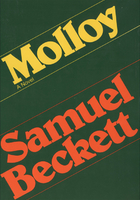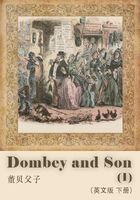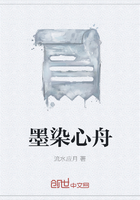That illustrious man and great national ornament, Mr Merdle, continued his shining course. It began to be widely understood that one who had done society the admirable service of making so much money out of it, could not be suffered to remain a commoner. A baronetcy was spoken of with confidence; a peerage was frequently mentioned. Rumour had it that Mr Merdle had set his golden face against a baronetcy; that he had plainly intimated to Lord Decimus that a baronetcy was not enough for him; that he had said, 'No-a Peerage, or plain Merdle.' This was reported to have plunged Lord Decimus as nigh to his noble chin in a slough of doubts as so lofty a person could be sunk. For the Barnacles, as a group of themselves in creation, had an idea that such distinctions belonged to them; and that when a soldier, sailor, or lawyer became ennobled, they let him in, as it were, by an act of condescension, at the family door, and immediately shut it again. Not only (said Rumour) had the troubled Decimus his own hereditary part in this impression, but he also knew of several Barnacle claims already on the file, which came into collision with that of the master spirit.
Right or wrong, Rumour was very busy; and Lord Decimus, while he was, or was supposed to be, in stately excogitation of the difficulty, lent her some countenance by taking, on several public occasions, one of those elephantine trots of his through a jungle of overgrown sentences, waving Mr Merdle about on his trunk as Gigantic Enterprise, The Wealth of England, Elasticity, Credit, Capital, Prosperity, and all manner of blessings.
So quietly did the mowing of the old scythe go on, that fully three months had passed unnoticed since the two English brothers had been laid in one tomb in the strangers' cemetery at Rome. Mr and Mrs Sparkler were established in their own house: a little mansion, rather of the Tite Barnacle class, quite a triumph of inconvenience, with a perpetual smell in it of the day before yesterday's soup and coach-horses, but extremely dear, as being exactly in the centre of the habitable globe. In this enviable abode (and envied it really was by many people), Mrs Sparkler had intended to proceed at once to the demolition of the Bosom, when active hostilities had been suspended by the arrival of the Courier with his tidings of death. Mrs Sparkler, who was not unfeeling, had received them with a violent burst of grief, which had lasted twelve hours; after which, she had arisen to see about her mourning, and to take every precaution that could ensure its being as becoming as Mrs Merdle's. A gloom was then cast over more than one distinguished family (according to the politest sources of intelligence), and the Courier went back again.
Mr and Mrs Sparkler had been dining alone, with their gloom cast over them, and Mrs Sparkler reclined on a drawing-room sofa. It was a hot summer Sunday evening. The residence in the centre of the habitable globe, at all times stuffed and close as if it had an incurable cold in its head, was that evening particularly stifling.
The bells of the churches had done their worst in the way of clanging among the unmelodious echoes of the streets, and the lighted windows of the churches had ceased to be yellow in the grey dusk, and had died out opaque black. Mrs Sparkler, lying on her sofa, looking through an open window at the opposite side of a narrow street over boxes of mignonette and flowers, was tired of the view. Mrs Sparkler, looking at another window where her husband stood in the balcony, was tired of that view. Mrs Sparkler, looking at herself in her mourning, was even tired of that view: though, naturally, not so tired of that as of the other two.
'It's like lying in a well,' said Mrs Sparkler, changing her position fretfully. 'Dear me, Edmund, if you have anything to say, why don't you say it?'
Mr Sparkler might have replied with ingenuousness, 'My life, I have nothing to say.' But, as the repartee did not occur to him, he contented himself with coming in from the balcony and standing at the side of his wife's couch.
'Good gracious, Edmund!' said Mrs Sparkler more fretfully still, you are absolutely putting mignonette up your nose! Pray don't!'
Mr Sparkler, in absence of mind-perhaps in a more literal absence of mind than is usually understood by the phrase-had smelt so hard at a sprig in his hand as to be on the verge of the offence in question. He smiled, said, 'I ask your pardon, my dear,' and threw it out of window.
'You make my head ache by remaining in that position, Edmund,' said Mrs Sparkler, raising her eyes to him after another minute; 'you look so aggravatingly large by this light. Do sit down.'
'Certainly, my dear,' said Mr Sparkler, and took a chair on the same spot.
'If I didn't know that the longest day was past,' said Fanny, yawning in a dreary manner, 'I should have felt certain this was the longest day. I never did experience such a day.'
'Is that your fan, my love?' asked Mr Sparkler, picking up one and presenting it.
'Edmund,' returned his wife, more wearily yet, 'don't ask weak questions, I entreat you not. Whose can it be but mine?'
'Yes, I thought it was yours,' said Mr Sparkler.
'Then you shouldn't ask,' retorted Fanny. After a little while she turned on her sofa and exclaimed, 'Dear me, dear me, there never was such a long day as this!' After another little while, she got up slowly, walked about, and came back again.
'My dear,' said Mr Sparkler, flashing with an original conception, 'I think you must have got the fidgets.'
'Oh, Fidgets!' repeated Mrs Sparkler. 'Don't.'
'My adorable girl,' urged Mr Sparkler, 'try your aromatic vinegar. I have often seen my mother try it, and it seemingly refreshed her.
And she is, as I believe you are aware, a remarkably fine woman, with no non-'
'Good Gracious!' exclaimed Fanny, starting up again. 'It's beyond all patience! This is the most wearisome day that ever did dawn upon the world, I am certain.'
Mr Sparkler looked meekly after her as she lounged about the room, and he appeared to be a little frightened. When she had tossed a few trifles about, and had looked down into the darkening street out of all the three windows, she returned to her sofa, and threw herself among its pillows.
'Now Edmund, come here! Come a little nearer, because I want to be able to touch you with my fan, that I may impress you very much with what I am going to say. That will do. Quite close enough. Oh, you do look so big!'
Mr Sparkler apologised for the circumstance, pleaded that he couldn't help it, and said that 'our fellows,' without more particularly indicating whose fellows, used to call him by the name of Quinbus Flestrin, Junior, or the Young Man Mountain.
'You ought to have told me so before,' Fanny complained.
'My dear,' returned Mr Sparkler, rather gratified, 'I didn't know It would interest you, or I would have made a point of telling you.'
'There! For goodness sake, don't talk,' said Fanny; 'I want to talk, myself. Edmund, we must not be alone any more. I must take such precautions as will prevent my being ever again reduced to the state of dreadful depression in which I am this evening.'
'My dear,' answered Mr Sparkler; 'being as you are well known to be, a remarkably fine woman with no-'
'Oh, good GRACIOUS!' cried Fanny.
Mr Sparkler was so discomposed by the energy of this exclamation, accompanied with a flouncing up from the sofa and a flouncing down again, that a minute or two elapsed before he felt himself equal to saying in explanation:
'I mean, my dear, that everybody knows you are calculated to shine in society.'
'Calculated to shine in society,' retorted Fanny with great irritability; 'yes, indeed! And then what happens? I no sooner recover, in a visiting point of view, the shock of poor dear papa's death, and my poor uncle's-though I do not disguise from myself that the last was a happy release, for, if you are not presentable you had much better die-'
'You are not referring to me, my love, I hope?' Mr Sparkler humbly interrupted.
'Edmund, Edmund, you would wear out a Saint. Am I not expressly speaking of my poor uncle?'
'You looked with so much expression at myself, my dear girl,' said Mr Sparkler, 'that I felt a little uncomfortable. Thank you, my love.'
'Now you have put me out,' observed Fanny with a resigned toss of her fan, 'and I had better go to bed.'
'Don't do that, my love,' urged Mr Sparkler. 'Take time.'
Fanny took a good deal of time: lying back with her eyes shut, and her eyebrows raised with a hopeless expression as if she had utterly given up all terrestrial affairs. At length, without the slightest notice, she opened her eyes again, and recommenced in a short, sharp manner:
'What happens then, I ask! What happens? Why, I find myself at the very period when I might shine most in society, and should most like for very momentous reasons to shine in society-I find myself in a situation which to a certain extent disqualifies me for going into society. it's too bad, really!'
'My dear,' said Mr Sparkler. 'I don't think it need keep you at home.'
'Edmund, you ridiculous creature,' returned Fanny, with great indignation; 'do you suppose that a woman in the bloom of youth and not wholly devoid of personal attractions, can put herself, at such a time, in competition as to figure with a woman in every other way her inferior? If you do suppose such a thing, your folly is boundless.'
Mr Sparkler submitted that he had thought 'it might be got over.'
'Got over!' repeated Fanny, with immeasurable scorn.
'For a time,' Mr Sparkler submitted.
Honouring the last feeble suggestion with no notice, Mrs Sparkler declared with bitterness that it really was too bad, and that positively it was enough to make one wish one was dead!
'However,' she said, when she had in some measure recovered from her sense of personal ill-usage; 'provoking as it is, and cruel as it seems, I suppose it must be submitted to.'
'Especially as it was to be expected,' said Mr Sparkler.
'Edmund,' returned his wife, 'if you have nothing more becoming to do than to attempt to insult the woman who has honoured you with her hand, when she finds herself in adversity, I think YOU had better go to bed!'
Mr Sparkler was much afflicted by the charge, and offered a most tender and earnest apology. His apology was accepted; but Mrs Sparkler requested him to go round to the other side of the sofa and sit in the window-curtain, to tone himself down.
'Now, Edmund,' she said, stretching out her fan, and touching him with it at arm's length, 'what I was going to say to you when you began as usual to prose and worry, is, that I shall guard against our being alone any more, and that when circumstances prevent my going out to my own satisfaction, I must arrange to have some people or other always here; for I really cannot, and will not, have another such day as this has been.'
Mr Sparkler's sentiments as to the plan were, in brief, that it had no nonsense about it. He added, 'And besides, you know it's likely that you'll soon have your sister-'
'Dearest Amy, yes!' cried Mrs Sparkler with a sigh of affection. 'Darling little thing! Not, however, that Amy would do here alone.'
Mr Sparkler was going to say 'No?' interrogatively, but he saw his danger and said it assentingly, 'No, Oh dear no; she wouldn't do here alone.'
'No, Edmund. For not only are the virtues of the precious child of that still character that they require a contrast-require life and movement around them to bring them out in their right colours and make one love them of all things; but she will require to be roused, on more accounts than one.'
'That's it,' said Mr Sparkler. 'Roused.'
'Pray don't, Edmund! Your habit of interrupting without having the least thing in the world to say, distracts one. You must be broken of it. Speaking of Amy;-my poor little pet was devotedly attached to poor papa, and no doubt will have lamented his loss exceedingly, and grieved very much. I have done so myself. I have felt it dreadfully. But Amy will no doubt have felt it even more, from having been on the spot the whole time, and having been with poor dear papa at the last; which I unhappily was not.'
Here Fanny stopped to weep, and to say, 'Dear, dear, beloved papa! How truly gentlemanly he was! What a contrast to poor uncle!'
'From the effects of that trying time,' she pursued, 'my good little Mouse will have to be roused. Also, from the effects of this long attendance upon Edward in his illness; an attendance which is not yet over, which may even go on for some time longer, and which in the meanwhile unsettles us all by keeping poor dear papa's affairs from being wound up. Fortunately, however, the papers with his agents here being all sealed up and locked up, as he left them when he providentially came to England, the affairs are in that state of order that they can wait until my brother Edward recovers his health in Sicily, sufficiently to come over, and administer, or execute, or whatever it may be that will have to be done.'
'He couldn't have a better nurse to bring him round,' Mr Sparkler made bold to opine.
'For a wonder, I can agree with you,' returned his wife, languidly turning her eyelids a little in his direction (she held forth, in general, as if to the drawing-room furniture), 'and can adopt your words. He couldn't have a better nurse to bring him round. There are times when my dear child is a little wearing to an active mind; but, as a nurse, she is Perfection. Best of Amys!'
Mr Sparkler, growing rash on his late success, observed that Edward had had, biggodd, a long bout of it, my dear girl.
'If Bout, Edmund,' returned Mrs Sparkler, 'is the slang term for indisposition, he has. If it is not, I am unable to give an opinion on the barbarous language you address to Edward's sister. That he contracted Malaria Fever somewhere, either by travelling day and night to Rome, where, after all, he arrived too late to see poor dear papa before his death-or under some other unwholesome circumstances-is indubitable, if that is what you mean. Likewise that his extremely careless life has made him a very bad subject for it indeed.'
Mr Sparkler considered it a parallel case to that of some of our fellows in the West Indies with Yellow Jack. Mrs Sparkler closed her eyes again, and refused to have any consciousness of our fellows of the West Indies, or of Yellow Jack.
'So, Amy,' she pursued, when she reopened her eyelids, 'will require to be roused from the effects of many tedious and anxious weeks. And lastly, she will require to be roused from a low tendency which I know very well to be at the bottom of her heart. Don't ask me what it is, Edmund, because I must decline to tell you.'
'I am not going to, my dear,' said Mr Sparkler.
'I shall thus have much improvement to effect in my sweet child,' Mrs Sparkler continued, 'and cannot have her near me too soon. Amiable and dear little Twoshoes! As to the settlement of poor papa's affairs, my interest in that is not very selfish. Papa behaved very generously to me when I was married, and I have little or nothing to expect. Provided he had made no will that can come into force, leaving a legacy to Mrs General, I am contented. Dear papa, dear papa.'
She wept again, but Mrs General was the best of restoratives. The name soon stimulated her to dry her eyes and say:
'It is a highly encouraging circumstance in Edward's illness, I am thankful to think, and gives one the greatest confidence in his sense not being impaired, or his proper spirit weakened-down to the time of poor dear papa's death at all events-that he paid off Mrs General instantly, and sent her out of the house. I applaud him for it. I could forgive him a great deal for doing, with such promptitude, so exactly what I would have done myself!'
Mrs Sparkler was in the full glow of her gratification, when a double knock was heard at the door. A very odd knock. Low, as if to avoid making a noise and attracting attention. Long, as if the person knocking were preoccupied in mind, and forgot to leave off.
'Halloa!' said Mr Sparkler. 'Who's this?'
'Not Amy and Edward without notice and without a carriage!' said Mrs Sparkler. 'Look out.'
The room was dark, but the street was lighter, because of its lamps. Mr Sparkler's head peeping over the balcony looked so very bulky and heavy that it seemed on the point of overbalancing him and flattening the unknown below.
'It's one fellow,' said Mr Sparkler. 'I can't see who-stop though!' On this second thought he went out into the balcony again and had another look. He came back as the door was opened, and announced that he believed he had identified 'his governor's tile.' He was not mistaken, for his governor, with his tile in his hand, was introduced immediately afterwards.
'Candles!' said Mrs Sparkler, with a word of excuse for the darkness.
'It's light enough for me,' said Mr Merdle.
When the candles were brought in, Mr Merdle was discovered standing behind the door, picking his lips. 'I thought I'd give you a call,' he said. 'I am rather particularly occupied just now; and, as I happened to be out for a stroll, I thought I'd give you a call.'
As he was in dinner dress, Fanny asked him where he had been dining?
'Well,' said Mr Merdle, 'I haven't been dining anywhere, particularly.'
'Of course you have dined?' said Fanny.
'Why-no, I haven't exactly dined,' said Mr Merdle.
He had passed his hand over his yellow forehead and considered, as if he were not sure about it. Something to eat was proposed. 'No, thank you,' said Mr Merdle, 'I don't feel inclined for it. I was to have dined out along with Mrs Merdle. But as I didn't feel inclined for dinner, I let Mrs Merdle go by herself just as we were getting into the carriage, and thought I'd take a stroll instead.'
Would he have tea or coffee? 'No, thank you,' said Mr Merdle. 'I looked in at the Club, and got a bottle of wine.'
At this period of his visit, Mr Merdle took the chair.which Edmund Sparkler had offered him, and which he had hitherto been pushing slowly about before him, like a dull man with a pair of skates on for the first time, who could not make up his mind to start. He now put his hat upon another chair beside him, and, looking down into it as if it were some twenty feet deep, said again: 'You see I thought I'd give you a call.'
'Flattering to us,' said Fanny, 'for you are not a calling man.'
'No-no,' returned Mr Merdle, who was by this time taking himself into custody under both coat-sleeves. 'No, I am not a calling man.'
'You have too much to do for that,' said Fanny. 'Having so much to do, Mr Merdle, loss of appetite is a serious thing with you, and you must have it seen to. You must not be ill.'
'Oh! I am very well,' replied Mr Merdle, after deliberating about it. 'I am as well as I usually am. I am well enough. I am as well as I want to be.'
The master-mind of the age, true to its characteristic of being at all times a mind that had as little as possible to say for itself and great difficulty in saying it, became mute again. Mrs Sparkler began to wonder how long the master-mind meant to stay.
'I was speaking of poor papa when you came in, sir.'
'Aye! Quite a coincidence,' said Mr Merdle.
Fanny did not see that; but felt it incumbent on her to continue talking. 'I was saying,' she pursued, 'that my brother's illness has occasioned a delay in examining and arranging papa's property.'
'Yes,' said Mr Merdle; 'yes. There has been a delay.'
'Not that it is of consequence,' said Fanny.
'Not,' assented Mr Merdle, after having examined the cornice of all that part of the room which was within his range: 'not that it is of any consequence.'
'My only anxiety is,' said Fanny, 'that Mrs General should not get anything.'
'She won't get anything,' said Mr Merdle.
Fanny was delighted to hear him express the opinion. Mr Merdle, after taking another gaze into the depths of his hat as if he thought he saw something at the bottom, rubbed his hair and slowly appended to his last remark the confirmatory words, 'Oh dear no. No. Not she. Not likely.'
As the topic seemed exhausted, and Mr Merdle too, Fanny inquired if he were going to take up Mrs Merdle and the carriage in his way home?
'No,' he answered; 'I shall go by the shortest way, and leave Mrs Merdle to-' here he looked all over the palms of both his hands as if he were telling his own fortune-'to take care of herself. I dare say she'll manage to do it.'
'Probably,' said Fanny.
There was then a long silence; during which, Mrs Sparkler, lying back on her sofa again, shut her eyes and raised her eyebrows in her former retirement from mundane affairs.
'But, however,' said Mr Merdle, 'I am equally detaining you and myself. I thought I'd give you a call, you know.'
'Charmed, I am sure,' said Fanny.
'So I am off,' added Mr Merdle, getting up. 'Could you lend me a penknife?'
It was an odd thing, Fanny smilingly observed, for her who could seldom prevail upon herself even to write a letter, to lend to a man of such vast business as Mr Merdle. 'Isn't it?' Mr Merdle acquiesced; 'but I want one; and I know you have got several little wedding keepsakes about, with scissors and tweezers and such things in them. You shall have it back to-morrow.'
'Edmund,' said Mrs Sparkler, 'open (now, very carefully, I beg and beseech, for you are so very awkward) the mother of pearl box on my little table there, and give Mr Merdle the mother of pearl penknife.'
'Thank you,' said Mr Merdle; 'but if you have got one with a darker handle, I think I should prefer one with a darker handle.'
'Tortoise-shell?'
'Thank you,' said Mr Merdle; 'yes. I think I should prefer tortoise-shell.'
Edmund accordingly received instructions to open the tortoise-shell box, and give Mr Merdle the tortoise-shell knife. On his doing so, his wife said to the master-spirit graciously:
'I will forgive you, if you ink it.'
'I'll undertake not to ink it,' said Mr Merdle.
The illustrious visitor then put out his coat-cuff, and for a moment entombed Mrs Sparkler's hand: wrist, bracelet, and all. Where his own hand had shrunk to, was not made manifest, but it was as remote from Mrs Sparkler's sense of touch as if he had been a highly meritorious Chelsea Veteran or Greenwich Pensioner.
Thoroughly convinced, as he went out of the room, that it was the longest day that ever did come to an end at last, and that there never was a woman, not wholly devoid of personal attractions, so worn out by idiotic and lumpish people, Fanny passed into the balcony for a breath of air. Waters of vexation filled her eyes; and they had the effect of making the famous Mr Merdle, in going down the street, appear to leap, and waltz, and gyrate, as if he were possessed of several Devils.















